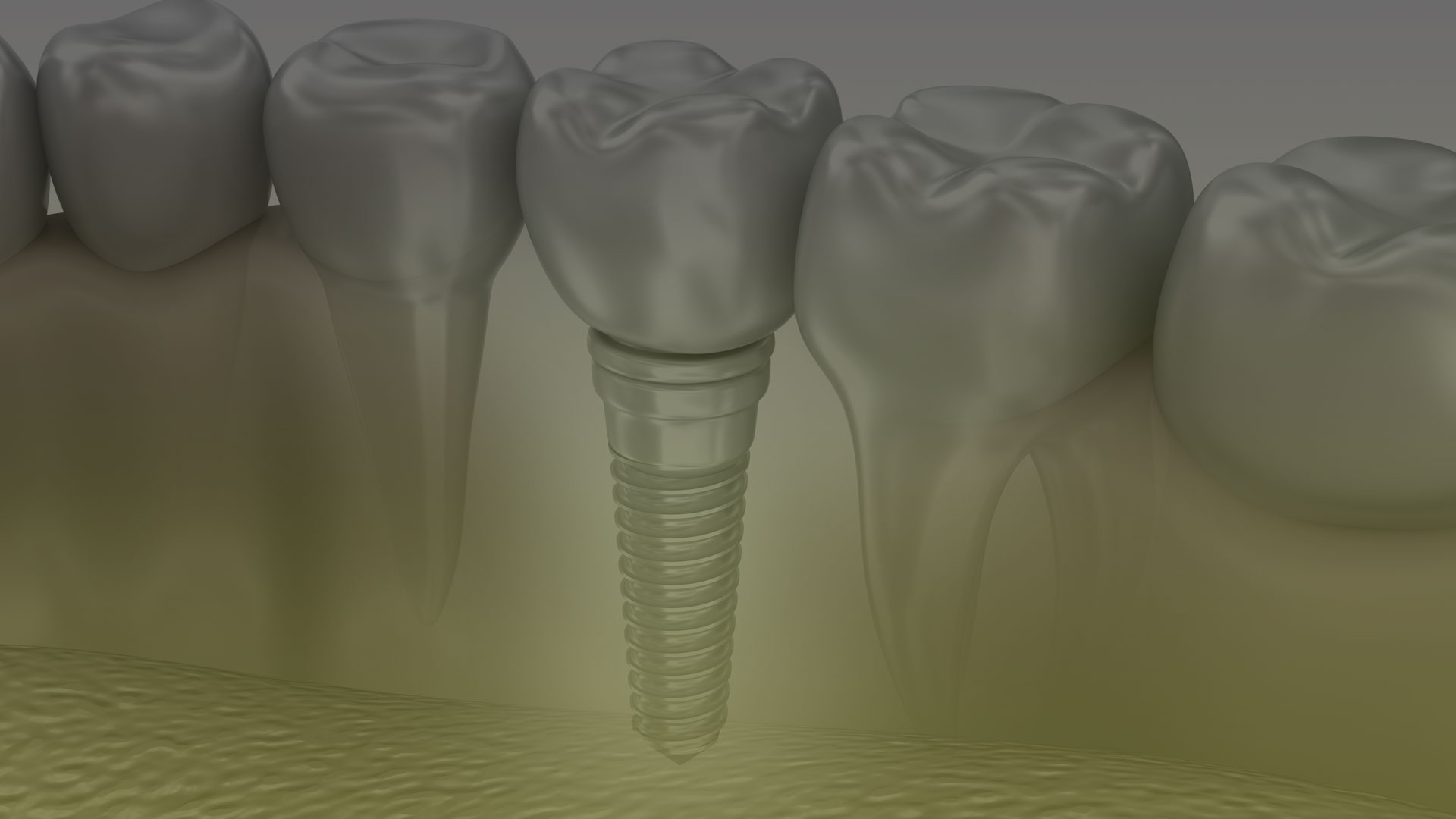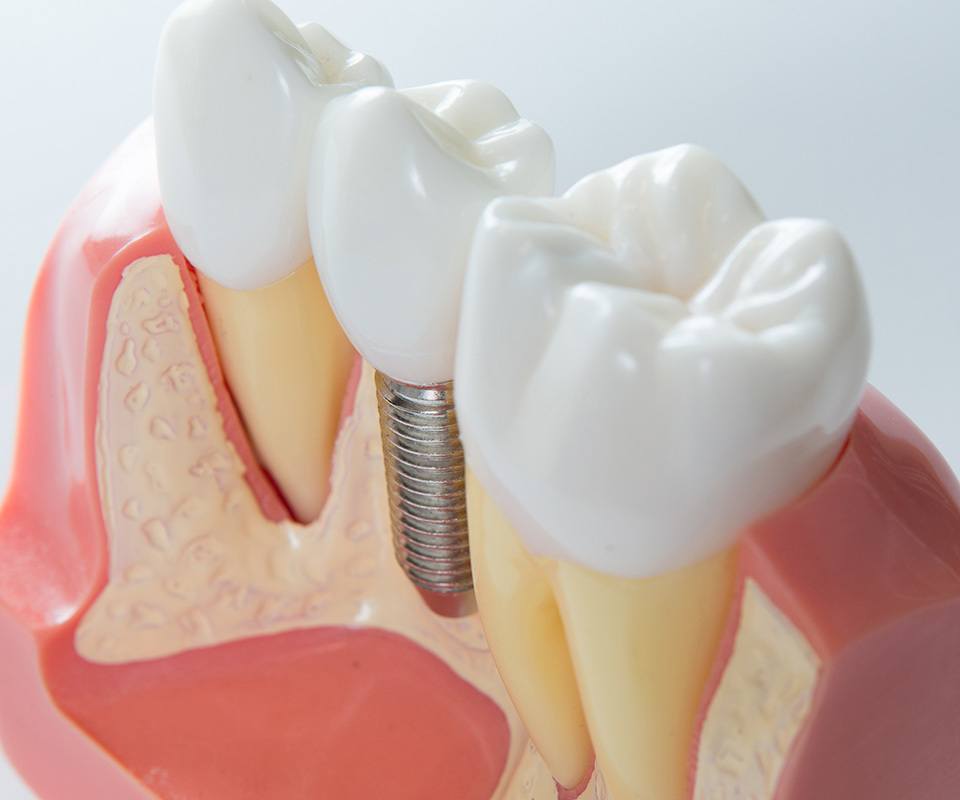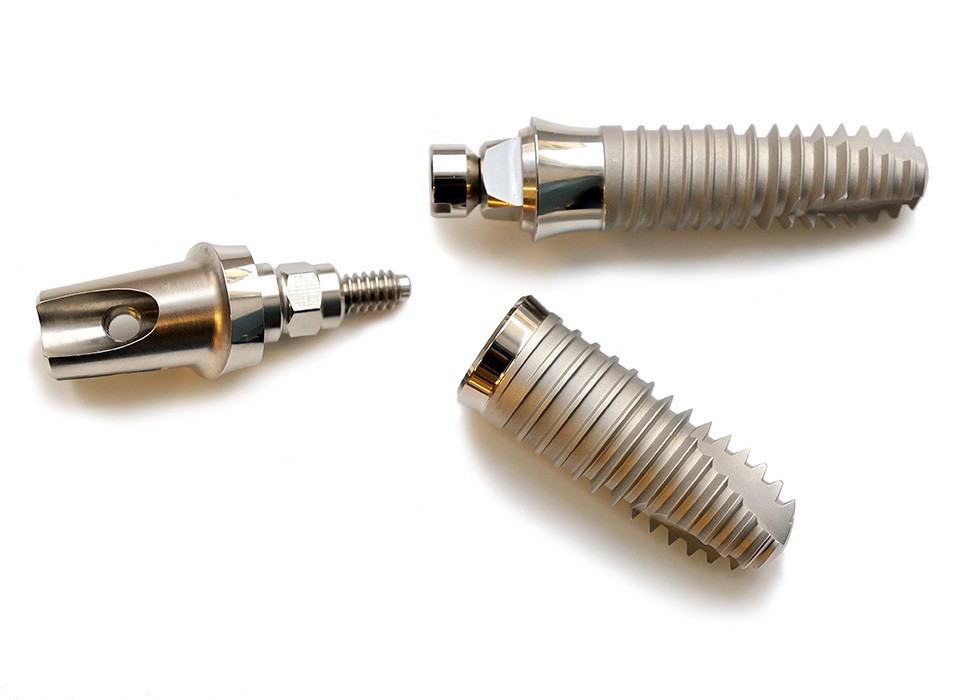
What are Dental Implants?
Dental implants are often made of titanium. This metal is often preferred in medical and dental procedures due to its ability to blend with the human body and integrate seamlessly during the healing process. Technological advancements have enabled implants to be produced in very simple, safe alternatives giving patients with missing teeth a natural-looking smile.
Dental implants may be used to support a crown that was put in place to replace a single missing tooth. Implants can also be used to support bridges, which span the gap where several teeth are missing. An individual can also undergo dental implant surgery to support dentures.
Benefits of dental implants
Unlike traditional crowns, bridges and dentures, dental implants offer the following advantages:
- Implants mimic the look and feel of regular human teeth hence will give the patient a more natural-looking appearance.
- Implants are not high maintenance in the sense that, patients are not limited as to what they can eat or how often they must clean their teeth. The implants work just the same way as natural teeth.
- Unlike traditional treatments like dentures, implants do not require any specialized glue to stick into place.
- The implants take the place of natural teeth which means that they act as a protective element for the bone structure. In fact, implants are known to help in the bone renewal process which helps the patient to maintain a structured face and teeth.
- The surrounding teeth are not affected since there's no need to file them and reduce the need for fillings.


What are dental implants made of?
Dental implants are often made from a metal known as titanium. They come in the shape of a screw or tube. The typical dental implant is 8-16mm long. The exact dimensions will depend on the patient's needs. Implants are placed specifically into the jawbone in order to serve as a root for the absent tooth. Once placed, they are connected with the crown, bridge or denture that supports the tooth using what is known as an abutment.
The healing process is known as osseointegration and it occurs within 3 to 6 months. During this time, the jawbone slowly integrates with the implant's titanium exterior. Once this integration is complete, the implant is ready to take on the additional weight of a false tooth or teeth.
Should you consider having dental implants?
Dental implants are ideal in the following situations:
- For patients with one or more missing teeth
- For patients who are unable to chew properly due to missing teeth
- When you want to improve the overall look of your smile
Implants are recommended for patients who are above 18 years of age with a healthy mouth, no gum disease or tooth decay. For the implants to succeed over the patient's lifetime, it's important to maintain good oral hygiene. After performing a dental implant procedure, our dentist will schedule a series of regular follow-ups which helps us to monitor the healing process and prevent any complications. Follow up visits are important to ensure you get the best possible results.
When is a dental implant not appropriate?
There are indeed situations where a dental implant is not recommended. At our dental clinic, we receive patients who have a desire to get implants but may not be good candidates for this procedure. We'll go over some situations where we do not recommend dental implants:
- Patients with a jawbone that's too thin to support implants. In some cases, bone grafting is done to thicken the bone.
- Smokers are generally not good candidates for dental implants as they don't recover from the procedure as quickly as non-smokers.
- Patients with periodontitis are more prone to infections in the implants.
- Patients with untreated diabetes are also not good candidates because they don't heal as fast and are more prone to infection.
- Patients with other medical conditions such as immune system deficiencies, systemic illnesses, blood clotting disorders, and bone diseases.
The Dental Implant Treatment Process
Are you interested in getting a dental implant and would like to know what the treatment process is like? We'll walk you through the steps involved in dental implant procedures. Click here to see more details about the dental implant procedure.
Consultation stage
When you book a consultation with your dentist, he/she will walk you through the dental implant process. You can raise any concerns you have regarding this treatment at this stage. Your dentist will assess your specific situation and recommend if implants are the best course of action to take.
The dentist will then begin the initial examinations such as requesting for an x-ray to determine where the implants will be placed. The x-ray gives the dentist information on how your bones are shaped and where the nerves and sinuses are located. This information helps the dentist to better determine where the implants will be placed.
Dental implant treatment should be designed to suit the patient's facial structure. If the implant is not placed in the best possible location, it may lead to failure. This initial consultation also involves getting all your personal and medical information to determine if you are a good candidate for the treatment.
Placement of the dental implant
Dental implant treatment may occur in one or two stages depending on the patient's needs. Both procedures involve making a small incision in the gum tissue to reveal the bone and then carefully drilling into the bone to create a hole where the implant will be placed.
If the procedure is being done in a single-stage, the implant is placed in the hole and then covered using what is called a healing cap. The purpose of this is to protect the implant site from any harm. The cap sticks up through the gum so it's easy to identify the location of the implant. This healing cap is then taken out after the recovery period which is typically 3 to 6 months. A permanent fixture called an abutment is then used to replace the healing cap.
The double-stage dental implant procedure involves more or less the same process. However, the dental implant is covered with a cover screw to offer adequate protection. Later on, the dentist will make a small incision in the gum to reveal the implant and secure it with a healing cap. This healing cap is later removed after the healing stage and replaced with an abutment. The implant is now ready to receive a crown or any other artificial replacement tooth.
